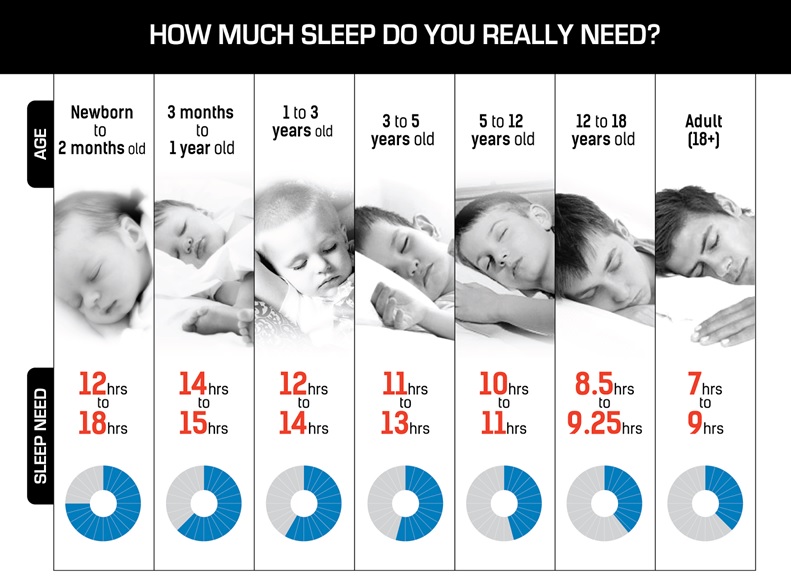Sleep
Sleep is essential to our health and well-being. Lack of sleep can adversely affect us in many ways. A good night’s sleep helps us form new learning pathways in the brain but is also necessary for those pathways to work well. Sleep allows our cardiovascular system to enter a state of rest and allows the body the time it needs to repair and reproduce necessary hormones. Lack of sleep makes us irritable which can impact on our relationships and increase depression. Poor focus and confusion are also common problems that occur with lack of sleep and can contribute to accidents, poor decision-making and/or high risk behavior. Studies have shown that driving while sleep deprived can be as dangerous as driving while intoxicated. Reduced sleep puts our body under stress which causes a release of adrenaline, cortisol and other stress hormones which over prolonged periods of time can be harmful to our overall health. Insufficient sleep can put us at risk for heart attack and stroke as well development of chronic diseases like hypertension, diabetes, lipid disorders & obesity. It also negatively impacts our ability to fight infection.
Sleep disorders include insomnia, restless leg syndrome & narcolepsy.
(Obstructive Sleep Apnea is discussed under a separate menu item)
Insomnia is the feeling of inadequate or poor-quality sleep because of one or more of the following: trouble falling asleep (Initial Insomnia); trouble remaining asleep through the night (Middle Insomnia); waking up too early (Terminal Insomnia); or unrefreshing sleep for at least one month. These can all lead to daytime drowsiness, poor concentration and the inability to feel refreshed and rested upon awakening.
Restless Leg Syndrome is a neurological disorder characterized by throbbing, pulling, creeping, or other unpleasant sensations in the legs and an uncontrollable, and sometimes overwhelming, urge to move them. Symptoms occur primarily at night when a person is relaxing or at rest and can increase in severity during the night. Moving the legs relieves the discomfort. Often called paresthesias (abnormal sensations) or dysesthesias (unpleasant abnormal sensations), the sensations range in severity from uncomfortable to irritating to painful.
Narcolepsy is a neurological disorder that affects the control of sleep and wakefulness with rapid eye movement (REM) sleep intrusion into the wake state. In its classic form, seen in only 10% to 15% of cases, it is characterized by a combination of symptoms that include excessive daytime sleepiness, cataplexy (generalized muscle weakness leading to partial or complete collapse), hypnagogic/hypnopompic hallucinations (visual or auditory perceptions on falling asleep or on awakening), and sleep paralysis.
How much sleep do I need?
Everyone’s sleep needs vary but on average per night:
- Healthy adults need 8-8.5 hours of sleep
- Newborns need 16-18 hours of sleep
- Pre-school children need 11-12 hours of sleep
- School-aged children and adolescents need 10 hours of sleep
- Sleep cycles can also change over the life cycle
For information about sleep disorders, healthy sleep habits and where to go for help please review the following websites:
http://www.healthypeople.gov/2020/topicsobjectives2020/overview.aspx?topicid=38
http://www.nhlbi.nih.gov/health/public/sleep/healthy_sleep.pdf
http://www.nhlbi.nih.gov/health/public/sleep/healthysleepfs.pdf
http://nihseniorhealth.gov/sleepandaging/aboutsleep/01.html



